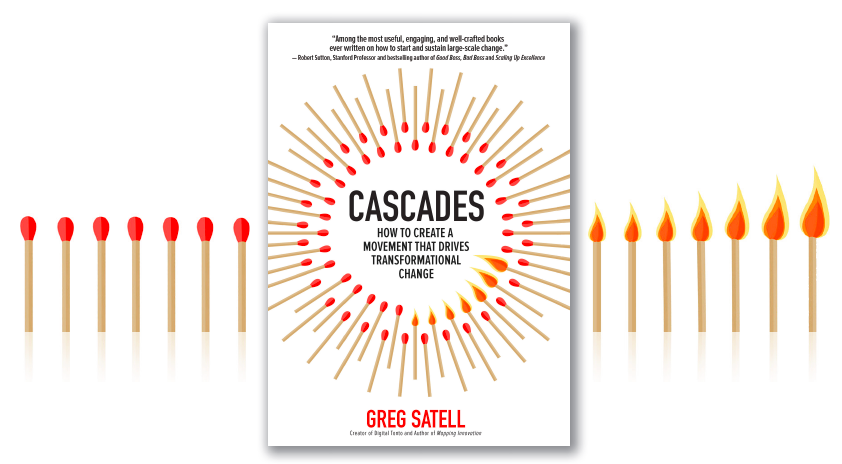
Technology revolutionizes the way businesses operate, but implementing change within a company is often challenging. Company-wide support is vital to successfully undergo a transformation.
At Experian, in 2015, we underwent the task of moving from a traditional computing architecture to the cloud. This is a monumental transformation with our massive digital infrastructure and significant global reach, but it enables us to provide customers with real-time access to data. This journey is featured in the new book, Cascades: How to Create a Movement that Drives Transformational Change, by Greg Satell.
Last year Satell’s first book shone a light on Experian’s innovation story. In his latest book he talks about the power of cascades – small groups, united with a common purpose – to drive transformational change within businesses. He gives examples of how some companies succeed, while others fail.
Satell uses Experian as a case study and highlights how changes to our culture, organizational structure and skills is allowing us to adopt new technologies quicker, in better collaboration with our customers, to get cutting-edge, innovative products to market faster.
At Experian, we believe in the culture of inclusion, which brings a culture of innovation with the added diversity perspective that empowers our people to continue to evolve and create valuable additions to the company during this transformation. Our philosophy is about advancing a culture that not only respects differences, but also actively celebrates them.
In Cascades, Satell writes about the idea of small groups, loosely connected, but united by a common purpose. We asked the author for his thoughts about Experian’s technology journey, which he refers to as our digital transformation, and why he’s used Experian as a success story in his book.
Q. What are your thoughts about Experian’s digital transformation so far?
Satell: What attracted me to the Experian story was how closely it tracked with so many of the social and political movements I researched for my book. Senior leadership at Experian didn’t just try to push its digital transformation through. Rather, they identified those who were already enthusiastic and empowered them to bring others into the fold and they, in turn, could bring others in. That’s how you create a cascade that leads to transformational change.
Q. What has impressed you the most about Experian’s digital transformation, from both technology and human perspectives?
Satell: What I found most impressive is that Experian is able to break free from decades of legacy and build a new future for itself. That’s a very hard thing to do. You have all this infrastructure that served the business so well for so long. I mean you’re talking about decades of investment. Still, the company leadership was able to step back and say, ‘That’s our past and we’re proud of it, but it’s not our future’, and move forward from there.
Q. Have you seen any examples of how our digital transformation is driving innovation within Experian?
Satell: Well I think it has driven a lot. Things like Experian’s Analytical Sandbox, the Ascend platform and much of the current work around Artificial Intelligence (AI) wouldn’t be possible without moving to more of a cloud infrastructure.